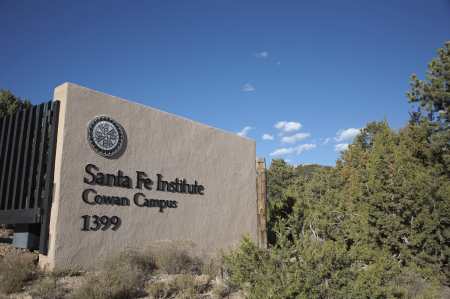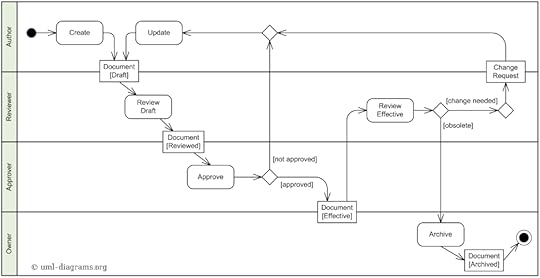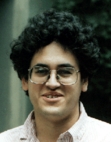John C. Baez's Blog, page 69
November 26, 2016
Compositional Frameworks for Open Systems
Here are the slides of Blake Pollard’s talk at the Santa Fe Institute workshop on Statistical Physics, Information Processing and Biology:
• Blake Pollard, Compositional frameworks for open systems, 17 November 2016.
He gave a really nice introduction to how we can use categories to study open systems, with his main example being ‘open Markov processes’, where probability can flow in and out of the set of states. People liked it a lot!


November 24, 2016
Under2 Coalition

I’ve been thinking hard about climate change since at least 2010. That’s why I started this blog. But the last couple years I’ve focused on basic research in network theory as a preliminary step toward green mathematics. Basic research is what I’m best at, and there are plenty of people working on the more immediate, more urgent aspects of climate change.
Indeed, after the Paris Agreement, I started hoping that politicians were taking this issue seriously and that we’d ultimately deal with i...
November 18, 2016
Jarzynksi on Non-Equilibrium Statistical Mechanics
Here at the Santa Fe Institute we’re having a workshop on Statistical Physics, Information Processing and Biology. Unfortunately the talks are not being videotaped, so it’s up to me to spread the news of what’s going on here.
Christopher Jarzynski is famous for discovering the Jarzynski equality. We’ve had a good quick explanation of it here on Azimuth:
• Eric Downes, Crooks’ Fluctuation Theorem, Azimuth, 30 April 2011.
We’ve also gotten a proof, where it was called the ‘integral fluctuation...
November 15, 2016
Algorithmic Thermodynamics (Part 3)

This is my talk for the Santa Fe Institute workshop on Statistical Mechanics, Information Processing and Biology:
It’s about the link between computation and entropy. I take the idea of a Turing machine for granted, but starting with that I explain recursive functions, the Church-Turing thesis, Kolomogorov complexity, the relation between Kolmogorov complexity and Shannon entropy, the uncomputability of Kolmogorov complexity, the ‘complexity barrier’, Levin’s co...
November 11, 2016
Monoidal Categories of Networks
Here are the slides of my colloquium talk at the Santa Fe Institute at 11 am on Tuesday, November 15th. I’ll explain some not-yet-published work with Blake Pollard on a monoidal category of ‘open Petri nets’:
• Monoidal categories of networks.
Nature and the world of human technology are full of networks. People like to draw diagrams of networks: flow charts, electrical circuit diagrams, chemical reaction networks, signal-flow graphs, Bayesian networks, food webs, Feynman diagrams and the li...
November 7, 2016
Information Processing and Biology
The Santa Fe Institute, in New Mexico, is a place for studying complex systems. I’ve never been there! Next week I’ll go there to give a colloquium on network theory, and also to participate in this workshop:
• Statistical Mechanics, Information Processing and Biology, November 16–18, Santa Fe Institute. Organized by David Krakauer, Michael Lachmann, Manfred Laubichler, Peter Stadler, and David Wolpert.
Abstract. This workshop will address a fundamental question in theoretical biology: Does...
November 5, 2016
Wind Energy in Texas

Here’s an interesting story about the rise of wind energy in Texas:
• Richard Martin, The one and only Texas wind boom, Technology Review, 3 October 2008.
I’ll quote the start:
Rolan Petty stabbed at the dirt with a boot toe and looked up at the broiling west Texas sun. âI call it farming on faith,â he said of his unirrigated cotton farm. âYou just have faith that the rain is gonna come.â
If it doesnât come, Petty has a backup income stream: leasing fees. All around us, towering 150 feet o...
November 1, 2016
Compositionality Workshop
I’m excited! In early December I’m going to a workshop on ‘compositionality’, meaning how big complex things can be built by sticking together smaller, simpler parts:
• Compositionality, December 5-9, workshop at the Simons Institute for the Theory of Computing, Berkeley. Organized by Samson Abramsky, Lucien Hardy and Michael Mislove.
In 2007 Jim Simons, the guy who helped invent Chern–Simons theory and then went on to make billions using math to run a hedge fund, founded a research center fo...
October 23, 2016
Open and Interconnected Systems
Brendan Fong finished his thesis a while ago, and here it is!
⢠Brendan Fong, The Algebra of Open and Interconnected Systems, Ph.D. thesis, Department of Computer Science, University of Oxford, 2016.
This material is close to my heart, since I’ve informally served as Brendan’s advisor since 2011, when he came to Singapore to work with me on chemical reaction networks. We’ve been collaborating intensely ever since. I just looked at our correspondence, and I see it consists of 880 emails!
At s...
October 18, 2016
Complex Adaptive System Design (Part 2)
Yesterday Blake Pollard and I drove to Metron’s branch in San Diego. For the first time, I met four of the main project participants: John Foley (math), Thy Tran (programming), Tom Mifflin and Chris Boner (two higher-ups involved in the project). Jeff Monroe and Tiffany Change give us a briefing on Metron’s ExAMS software. This lets you design complex systems and view them in various ways.
The most fundamental view is the ‘activity trace’, which consists of a bunch of parallel rows, one for...
John C. Baez's Blog
- John C. Baez's profile
- 29 followers





